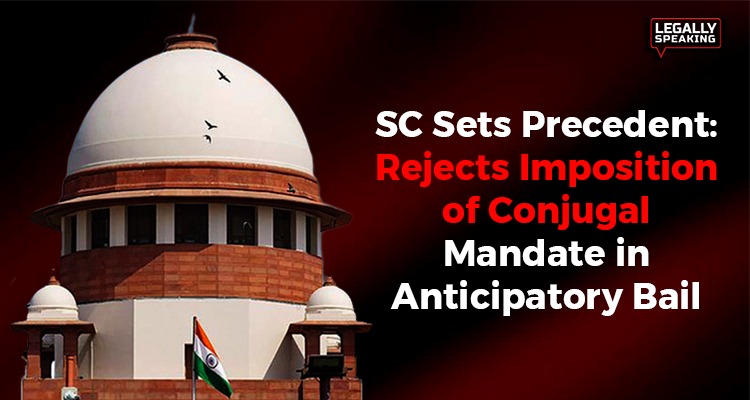
Recently, the Supreme Court of India, in the case titled KUNAL CHOUDHARY vs. THE STATE OF JHARKHAND, noted that a condition mandating the accused husband to take his wife to his house and maintain and honour her cannot be imposed while granting anticipatory bail under Section 498A of the IPC.
A Division Bench comprising Justices Bela M. Trivedi and Satish Chandra Sharma presided over the proceedings.
In this particular case, the appellant (accused husband), had sought anticipatory bail from the High Court of Jharkhand, Ranchi Bench. Although the High Court granted bail, it imposed a unique condition requiring the husband to bring his wife to his residence in the Bandra locality of Ranchi and ensure her maintenance with dignity and honour.
The condition stated, “Accordingly, the petitioner is directed to surrender in the Court within six weeks from today and in the event of his arrest or surrendering, he will be enlarged on bail on satisfying the trial court that the petitioner has taken the opposite party no.2 to his house at Bandra locality of Ranchi and keeping and maintaining her with full dignity and honor as his lawful wife.”
Subsequently, the husband sought modification of the order through a petition, asserting that he had secured a residence and was prepared to maintain his wife.
Conversely, the wife expressed her willingness to resume marital life if her husband joined her in their own home. Despite these arguments, the High Court rejected the husband’s plea, citing his adamant refusal to resume conjugal life at his own residence.
The matter then reached the Supreme Court of India, which unequivocally declared that such a condition should not have been imposed during the grant of anticipatory bail and should not be a basis for rejecting the appellant’s petition.
“In our opinion, neither such condition should have been imposed by the High Court while granting an anticipatory bail, nor such could be a ground for rejection of the petition filed by the appellant.”
Accordingly, the Supreme Court set aside the impugned order and granted bail to the appellant.




